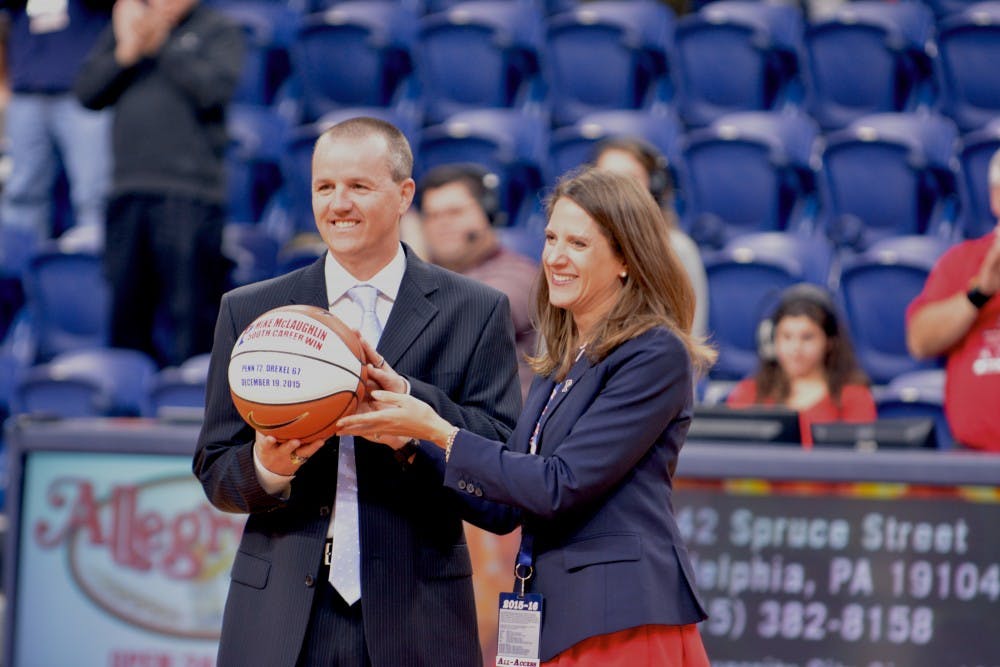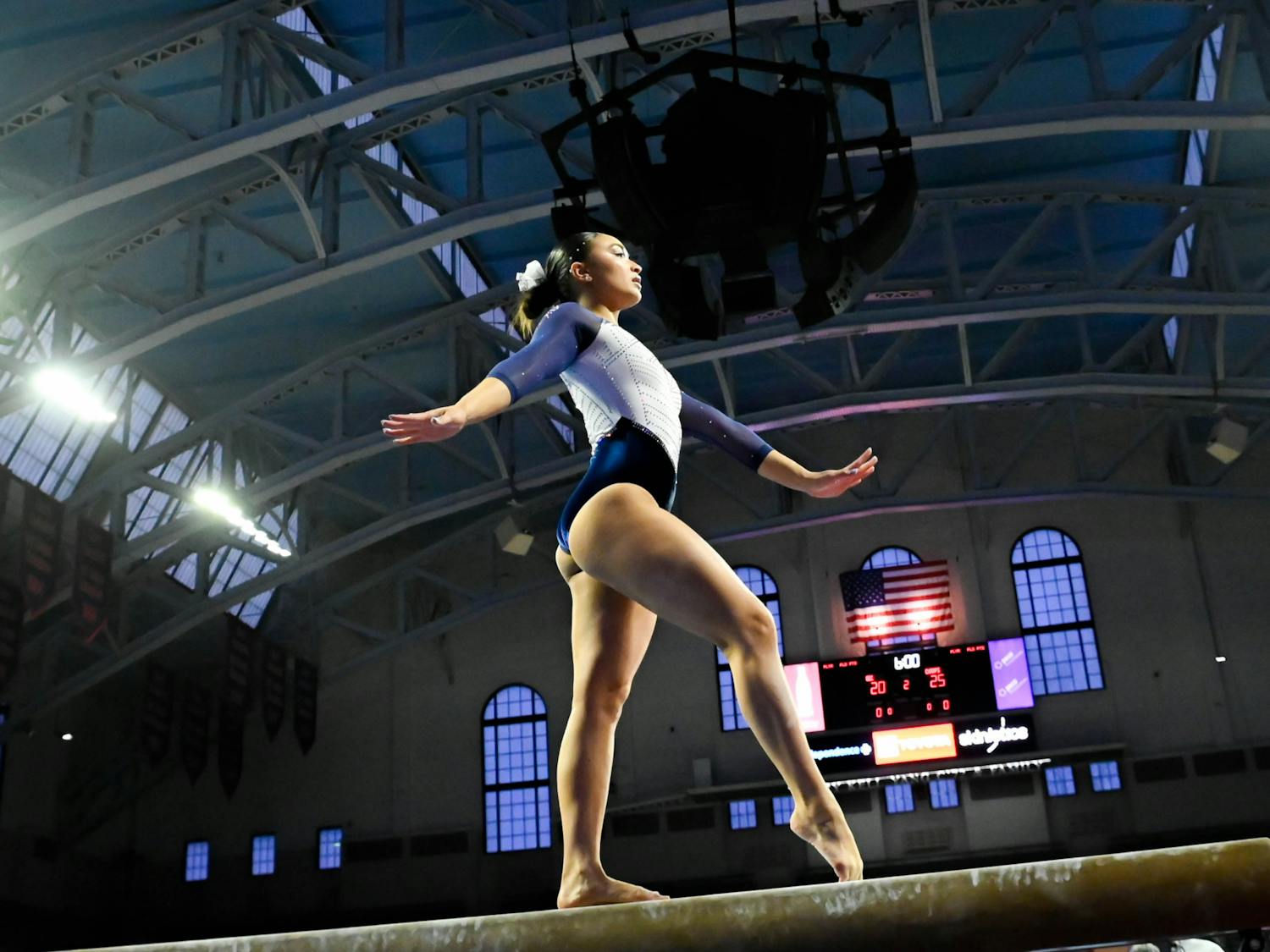Talk to almost any Penn administrator and they’ll tell you an Ivy League basketball tournament is ... inevitably going to be discussed.
Despite reports in December that the Ivy League was on the verge of announcing a postseason tournament to crown a conference champion, the actual pace of action seems to be a good deal slower.
Although Dean of Admissions Eric Furda tweeted his support for an Ancient Eight tournament prior to the Penn-Princeton games on Jan. 9, other administrators have been loath to take a stand either way.
“Like my Ivy League president peers, I want to wait until we actually have a chance to discuss it among the presidents,” Penn president Amy Gutmann said in early January. “But I do expect that we will discuss it in the not-too-distant future among the Ivy League presidents and come to a decision.”
Athletic Director Grace Calhoun offered in an early January interview that talks of a tournament are progressing farther than they ever have previously but declined to say where she falls in the debate.
In part, Calhoun’s reluctance is attributable to her not having the final say in this discussion. The conference is headed by the Council of Ivy Presidents, meaning that this decision would have to be made jointly by the university presidents, not the athletic directors.
“It will be a presidential decision — if they even decide to consider that,” Calhoun said. “I have no insights as to that right now. So I think it’s something that has merits, but no sense of where it will end up on that.”
Despite being unwilling to commit to either side, both Calhoun and Gutmann indicated that the opposition at Penn may be a minority.
“My sense is that there’s — and this is just my sense, and it could change — but my sense is that there is broad support here for it,” Gutmann noted. “I have spoken to Grace Calhoun about it and so I know that there is strong support here at Penn for it.”
The Ivy League has resisted implementing a postseason tournament — making it the only Division I conference that awards its automatic bid to the NCAA Tournament to the regular season champion — opting instead to promote what it calls the 14-Game Tournament, where each team plays the other seven Ivies twice in a season.
“I think there’s sentiment administratively and amongst the coaches that we always have to balance honoring tradition and we never want to do anything because the rest of the country does it,” Calhoun said. “We stand for some pretty lofty ideals and we’re OK to march to our own drum. But yet, at the same time, I think that there’s a feeling that we also don’t want to keep doing things because we’ve always done them.”
While such a structure has tended to pick out a single team that rises to the top, there have been instances where a one-game playoff was needed to break a tie at the top.
This was the case last March, as Harvard and Yale faced off at the Palestra for the chance to extend their seasons. It was the atmosphere around that game that sparked the reinvigoration of discussions around a tournament into 2016.
An added consideration for postseason play is the Ivy League’s lack of an NIT bid. While conferences with tournaments all get an NIT bid for the runner-up, the second-place team in the Ancient Eight is not guaranteed a spot.
This factor has become more salient as both men’s and women’s basketball has become more competitive across the Ivy League — including a record-setting 72 non-conference wins for the women’s teams through this point in the season.
The ability for non-champion squads to compete at a high level has helped make the case that a guaranteed bid to another postseason tournament would be a boon to the conference’s national profile.
It remains unclear how an Ivy tournament would be implemented — if it were to be implemented at all. At this juncture, conversations revolve around what the presidents would propose and when it would be brought for consideration.
“I think there’s sentiment administratively and amongst the coaches that we always have to balance honoring tradition and we never want to do anything because the rest of the country does it,” Calhoun said, noting that a number of factors are at play in the decision.
“So the thought if you introduce a tournament, does it keep more teams relevant for a longer amount of time? Does it make the regular season more relevant rather than less relevant? Does it give us a chance to promote our Ivy ideals and really show off what we think is the best model college athletics at a time when there’s a lot of attention around basketball?”
No matter what, the conversation around an Ivy tournament will continue for the foreseeable future, especially if the university presidents continue to defer on a decision.
But for now, this weekend we still get to turn our attention to the real portion of the season: The 14-game Tournament.








